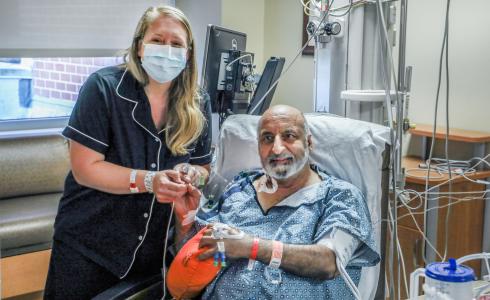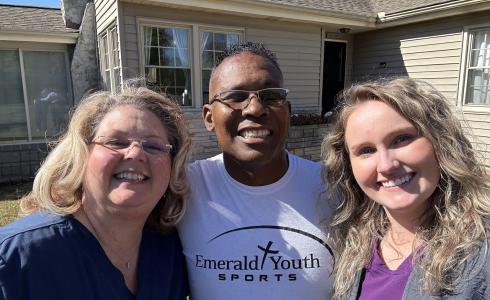Overview
Kidney transplant is a surgical procedure that removes one healthy kidney from one person and places it in another person who suffers from kidney disease or failure, allowing the transplanted kidney to perform the duties that the patient’s two failed kidneys cannot do.
- Living donor (donates kidney): While the patient is unconscious and pain-free (general anesthesia), an incision is made in the side of the abdomen (flank). The kidney is removed and the incision is closed.
- Kidney recipient (receives kidney): While the patient is unconscious and pain-free (general anesthesia), an incision is made in the lower abdomen. The new kidney is stitched into place within the pelvis and the incision is closed.
The kidney is placed inside the patient’s body between the upper thigh and abdomen. The surgeon connects the artery and vein of the new kidney to the patient’s artery and vein. The new kidney may start working right away or take a few weeks to create urine.
The kidney transplant surgery can take anywhere from three to six hours, with the average hospital stay lasting from five to seven days. After leaving the hospital, the patient requires regular follow-up visits. If a relative or close friend donates the kidney, the donor probably will stay in the hospital for less than a week, providing there are no complications.
Types of Donors
- Living-Related Donor: A live family member who donates a kidney.
- Cadaver Donor: A donor who recently has died but did not suffer from kidney disease or injury.
- Living-Unrelated Donor: A spouse or friend who donates a kidney.
A donor’s blood and tissues must closely match the patient’s to help prevent the body’s immune system from rejecting the new kidney. Tests on blood cells will be conducted to find out if the body will accept the new kidney.
The time it takes to get a kidney varies. The patient must be placed on a waiting list to receive a cadaver donor kidney. However, if a relative donates a kidney, the transplant operation can be done sooner.







